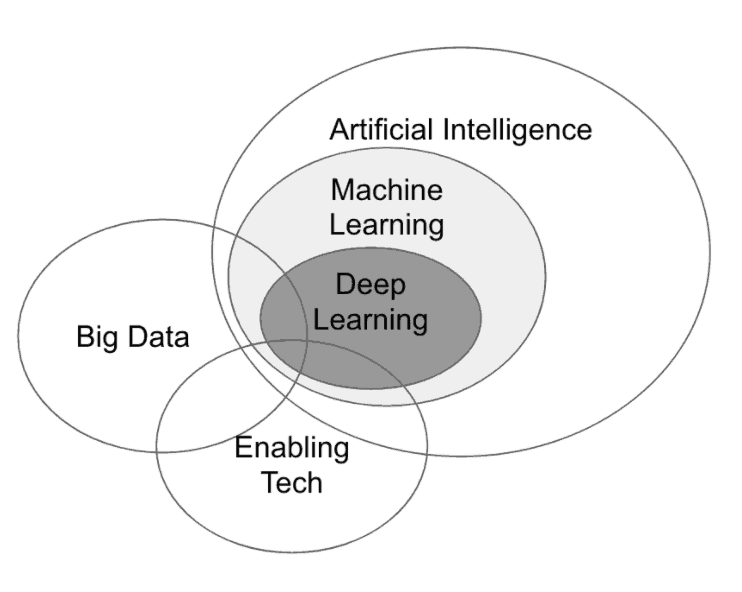10 really hard decisions coming our way — from gettingsmart.com by Tom Vander Ark
Excerpt (emphasis DSC):
Things are about to get interesting. You’ve likely heard that Google’s DeepMind recently beat the world’s best Go player. But in far more practical and pervasive ways, artificial intelligence (AI) is creeping into every aspect of life–every screen you view, every search, every purchase, and every customer service contact.
What’s happening? It’s the confluence of several technologies–Moore’s law made storage, computing, and access devices almost free.

This Venn diagram illustrates how deep learning is a subset of AI and how, when combined with big data, can inform enabling technologies in many sectors. For examples, to AI and big data add:
- Robotics, and you have industry 4.0.
- Cameras and sensor package, and you have self-driving cars.
- Sensors and bioinformatic maps, and you have precision medicine.
While there is lots of good news here–diseases will be eradicated and clean energy will be produced–we have a problem: this stuff is moving faster than civic infrastructure can handle. Innovation is outpacing public policy on all fronts. The following are 10 examples of issues coming at us fast that we (in the US in particular) are not ready to deal with.
- Unemployment.
- Income inequality.
- Privacy
- Algorithmic bias.
- Access.
- Machine ethics.
- Weaponization.
- Humanity.
- Genome editing.
- Bad AI.
From DSC:
Readers of this blog will know that I’m big on pulse-checking the pace of technological change — because it has enormous ramifications for societies throughout the globe, as well as for individuals, workforces, corporations, jobs, education, training, higher education and more. Readers of this blog will again hear me say that the pace of change has changed. We’re now on an exponential pace/trajectory (vs. a slow, steady, linear path).
“Innovation is outpacing public policy on all fronts.”
How true this is. Our society doesn’t know how to deal with this new pace of change. How shall we tackle this thorny issue?








